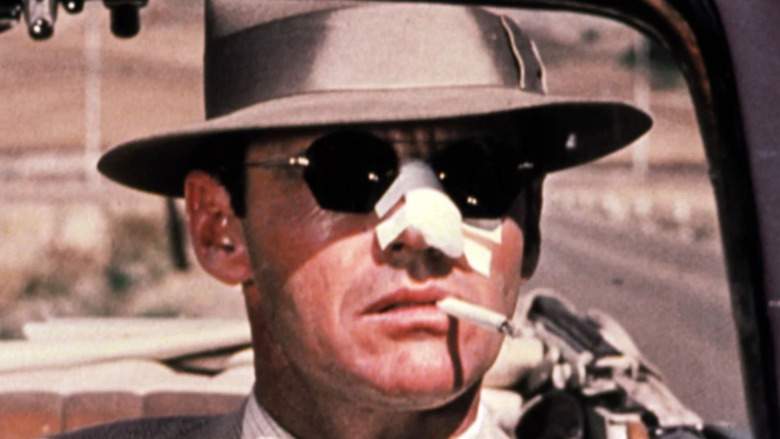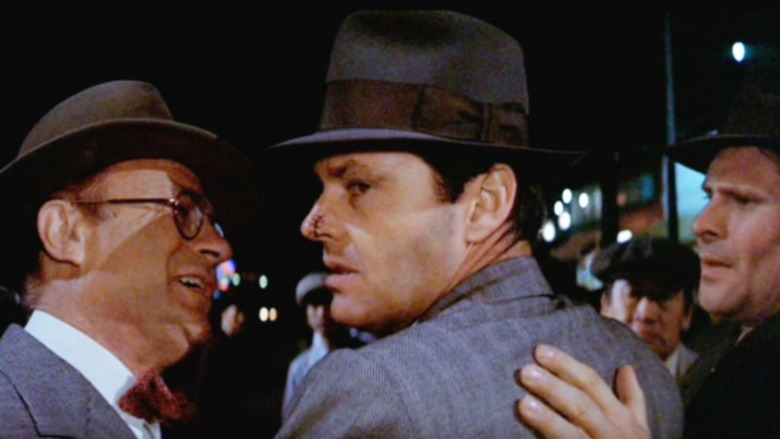The Ending Of Chinatown Explained
It's not controversial to say that "Chinatown" is one of the greatest movies ever made, and definitely one of the greatest mysteries ever made, even almost four decades after it premiered in 1974. It features an all-time great cast that included Jack Nicholson, Faye Dunaway, and John Huston, who delivers one of the most villainous performances of all time. But the strength of "Chinatown" strength also comes from its Oscar-winning script by Robert Towne. The story makes bold choices that few other movies would try. And one of its boldest choices is to refuse to give the audience a happy ending.
"Chinatown" is set in 1937 Los Angeles and follows private investigator J.J. "Jake" Gittes (Nicholson) as he investigates the murder of Hollis Mulwray, a city water engineer whose wife Evelyn (Dunaway) is the daughter of Noah Cross (Huston), one of LA's most powerful businessmen. Along the way, Jake discovers that Cross is behind a conspiracy to manipulate LA's water supply for his own personal gain, and murdered his son-in-law to keep it quiet. Even more disturbing, Jake learns that Cross has sexually abused Evelyn, which led to the birth of her daughter, Katherine.
But it doesn't matter. "Chinatown" is the sort of whodunit where learning the identity of the murderer still isn't satisfying, because justice is never served — and in fact, the discovery only leads to more bloodshed.
Get ready for one of the biggest downer endings in movie history
When Jake finally confronts Cross, Evelyn tries to flee to Mexico with Katherine, and Jake can only look on helplessly as the LAPD gun Evelyn down. As Jake watches Cross "comfort" Katherine and take her into his custody, one of his former LAPD colleagues tells him, "Forget it, Jake. It's Chinatown."
That line neatly sums up the movie's "you can't beat the system" message. While Evelyn's killing does literally take place in Chinatown, the film also uses Chinatown as a symbol for society at large. In a corrupt society like 1937 Los Angeles, where big business controls every aspect of life, morally upstanding individuals can do nothing. Even the police are resigned to this fact.
This is a devastating moment for Gittes personally, and not just because he doesn't get justice. He's a former LAPD officer who used to work Chinatown before he quit to become a P.I. — the movie never explains why he left, but it's implied that he was opposed to police corruption. In one scene with former Ventura county sheriff-turned Department of Water head of security Claude Mulvihill, Jake needles him about his connections to rum-runners during Prohibition. Jake saw becoming a P.I. as his chance to try to do some good outside the corrupt system.
But it hasn't quite gone that way. As a P.I., most of Jake's cases have been investigating adultery. The Hollis Mulwray murder is his first real chance at a case that could actually make a difference. And he actually does crack the case! But the system wins anyway. The one thing worse than having unfulfilled ambition is knowing that your ambition can never be fulfilled, no matter what you do.

